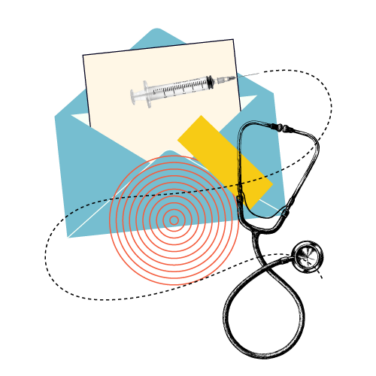Core medical billing software centralizes essential tasks like claims submission and payment tracking, helping practices streamline their finances and minimize administrative burdens.
Different medical fields, from physical therapy to dentistry, require specific billing software to effectively manage unique billing and coding needs, ensuring efficient payment processing.
Medical billing software improves operational efficiency by automating tasks, which saves time, minimizes errors, and enhances the financial performance of healthcare practices.
If you're looking for the top medical billing software, you know there are many options out there. Choosing the right one can feel overwhelming, especially when you're trying to address specific challenges in your practice.
You need a solution that fits your unique needs, whether it's handling insurance claims, patient billing, or managing financial reports. Understanding the functionality, key features, and benefits of different types of cloud-based medical billing software can help you make an informed decision.
Let's dive into what you should look for and how these tools can help your team run a more efficient practice.
What Is Medical Billing Software?
Medical billing software systems help manage the billing process in medical practices. It supports users by automating claims processing, tracking payments, medical billing code input, and handling patient billing. This software saves your team time and reduces errors.
A medical billing specialist can help you understand the different types of billing software available and which one fits your practice.
Types Of Medical Billing Software
Now that we’re all on the same page about what medical billing software is, let’s get into the different types of these solutions, so you can figure out which one is right for you!
First: Start by reading an explanation of medical billing, as well as an overview of medical billing & coding (and how they go hand-in-hand).
Core Medical Billing Software
Core medical billing software provides essential tools for managing the billing process in healthcare practices. It handles tasks such as submitting insurance claims, tracking payment statuses, and managing patient invoices.
By automating these core billing functions, the software helps reduce administrative burdens, minimize errors, and ensure faster reimbursements from insurance companies. This type of software is fundamental for maintaining smooth financial operations and billing compliance standards in any medical practice.
All effective billing software must be equipped to handle State-specific medical billing deadlines, reducing the risk of late submissions.
Medical Invoicing Software
Medical invoicing software helps healthcare providers manage patient billing and invoicing processes efficiently. It automates the generation of invoices for services rendered, reducing manual errors and ensuring timely payments. In addition to creating detailed invoices, this software often integrates with healthcare payment systems, allowing for seamless payment collection and tracking, improving cash flow for medical practices.
Small Business Medical Billing Software
Small business medical billing software is designed to meet the needs of smaller medical practices. These systems provide essential billing features, including patient invoicing, insurance claims management, and reporting tools, all within a budget-friendly package. By automating many routine tasks, they allow smaller practices to streamline operations and improve cash flow without the need for a large administrative staff.
Physical Therapy Billing Software
Physical therapy billing software is tailored specifically to the needs of physical therapists. It helps track the progress of multiple patient treatments while ensuring accurate coding for various therapeutic services. The software also simplifies insurance claims, allowing for seamless reimbursement and improved cash flow in physical therapy practices.
Web-Based Medical Billing Software
Web-based medical billing software allows medical professionals to access billing systems from any location with internet access. This type of software is ideal for multi-location practices or professionals working remotely. It also offers real-time updates and data security, ensuring smooth operation across various devices while reducing IT infrastructure costs.
Medical Accounting Software
Medical accounting software goes beyond basic billing functions by integrating comprehensive financial management tools. This software helps medical practices handle accounting tasks like payroll, tax filing, and financial reporting, all while maintaining regulatory compliance. By automating these financial processes, it allows healthcare providers to focus more on patient care.
Chiropractic Billing Software
Chiropractic billing software is designed to meet the specific needs of chiropractic practices. It simplifies the process of submitting claims for chiropractic treatments and manages complex insurance coding requirements. The software also integrates patient scheduling, ensuring smooth management of both clinical and administrative tasks in chiropractic offices.
Dental Billing Software
Dental billing software is specialized to handle the unique billing needs of dental practices. It simplifies the management of patient accounts, ensuring that procedures are coded correctly for insurance claims. In addition to billing, the software also supports patient scheduling and records management, making it a comprehensive tool for dental offices.
Prior Authorization Software
Prior authorization software automates the complex process of obtaining approvals from insurance companies for specific treatments. By streamlining this typically time-consuming task, the software reduces delays in patient care. It also helps healthcare providers avoid errors that could lead to claim denials, ultimately improving patient satisfaction and practice efficiency.
Revenue Cycle Management (RCM) Software
Revenue cycle management (RCM) solutions help you manage the financial processes of your medical practice, from patient registration to final payment. It supports the healthcare industry by automating billing, coding, and claims processing, reducing errors and saving time. RCM Software ensures your practice maintains a healthy cash flow and improves financial performance.
Claims Management Software
Claims management software helps you handle and process insurance claims efficiently. It supports your team by automating workflows, tracking claims status, and managing documentation. This software reduces administrative burdens and improves accuracy, making your practice more efficient through task automation.
Medical Coding Software
Medical coding software helps you convert medical diagnoses, procedures, and services into standardized codes. It supports your team by automating code assignment, reducing errors, and ensuring compliance with regulations. Overall, it saves time and improves accuracy in your practice.
Patient Payment Software
Patient payment software helps manage and process patient payments efficiently across the medical billing process. It supports you by automating healthcare billing, sending reminders, and offering multiple payment options. This software saves your team time and reduces errors, making your practice run more smoothly.
Compliance And Regulatory Software
Compliance and regulatory software helps you manage and adhere to industry regulations and standards. It supports healthcare organizations by automating documentation, tracking regulatory changes, and ensuring audit readiness. This software is invaluable for maintaining compliance and reducing the risk of penalties.
Expand your expertise by taking medical billing and coding courses that align with different types of billing software to optimize your practice's workflow.
10 Benefits Of Medical Billing Software
Here’s some of the benefits of using medical billing software, in my personal experience:
- Streamlines billing processes: Automates claims submissions, payments, and invoicing to reduce administrative burden.
- Cheaper than billing services costs: It's always cost effective to do things in-house, when you are able.
- Improves accuracy: Minimizes human errors in coding, billing, and data entry.
- Faster claim processing: Submits claims electronically for quicker insurance approvals and reimbursements.
- Reduces claim denials: Flags coding errors and missing information before submission.
- Enhances revenue cycle management: Tracks payments and outstanding balances to optimize cash flow.
- Simplifies compliance: Helps meet HIPAA and insurance regulations with audit-ready documentation.
- Boosts productivity: Frees up staff time by automating repetitive tasks and generating reports.
- Better patient experience: Provides clear electronic billing statements, online payment options, and faster dispute resolution.
- Centralized data management: Keeps patient records, billing history, and insurance info organized in one system.
- Customizable reporting: Offers financial insights with reports on billing trends, revenue, and claim performance.
You can also follow medical billing news sources to see how other companies are making the most of their mechtech.
Features Of Medical Billing Software
Here's what you should be looking for regarding key features of any medical billing software:
Essential Features of Medical Billing Software
- Patient registration
- Insurance verification
- Claims processing
- Payment processing
- Reporting and analytics
- Compliance tracking
- Appointment scheduling
- Billing and invoicing
- Denial management
- Patient statements
- Customer support
- Integration with practice management system
- Ease of use
Advanced Features of Medical Billing Software
- Electronic health records integration
- Automated coding
- Patient portal
- Mobile access
- Customizable templates
- Advanced reporting
- Machine learning for predictive analytics
- Telehealth billing
- Multi-location support
- Real-time eligibility verification
- Charting
Medical Billing Software Costs
The cost of medical billing software varies by practice size, features, and deployment (cloud vs. on-premise). Here’s a general estimate:
Small Practices (1–3 providers)
- Monthly Cost: $50–$300 per provider
- Example: Basic cloud-based software with appointment scheduling, claim submission, and patient billing
Mid-Sized Practices (4–10 providers)
- Monthly Cost: $300–$1,000 total or $100–$250 per provider
- Example: Advanced features like automated coding assistance, EHR integration, and reporting tools
Large Practices (10+ providers or multi-specialty groups)
- Monthly Cost: $1,000–$10,000+
- Example: Enterprise-level software with full revenue cycle management (RCM), custom integrations, analytics dashboards, and dedicated support
Top 10 Medical Billing Software
Here are our top picks of the best medical billing system, to help you in your search:
You can also outsource your medical billing needs by using medical billing companies. A medical billing service is a business that manages healthcare providers' billing processes by submitting claims, handling payments, and following up on denied claims. Medical billing services streamline the revenue cycle for healthcare providers, reduce administrative burdens, and improve claim accuracy and payment turnaround times.
You Might Also Like: What do medical billers make? Salary expectations in 2025
Need Help Choosing A Medical Billing Software?
Our team of experts knows the ins and outs of all kinds of medical billing software and is ready to help you narrow down your options. Get free advice and find the best tool for your team!
What Next?
To stay updated on the latest trends, best practices, and solutions related to your medical practice, subscribe to The Medical Practice newsletter.



